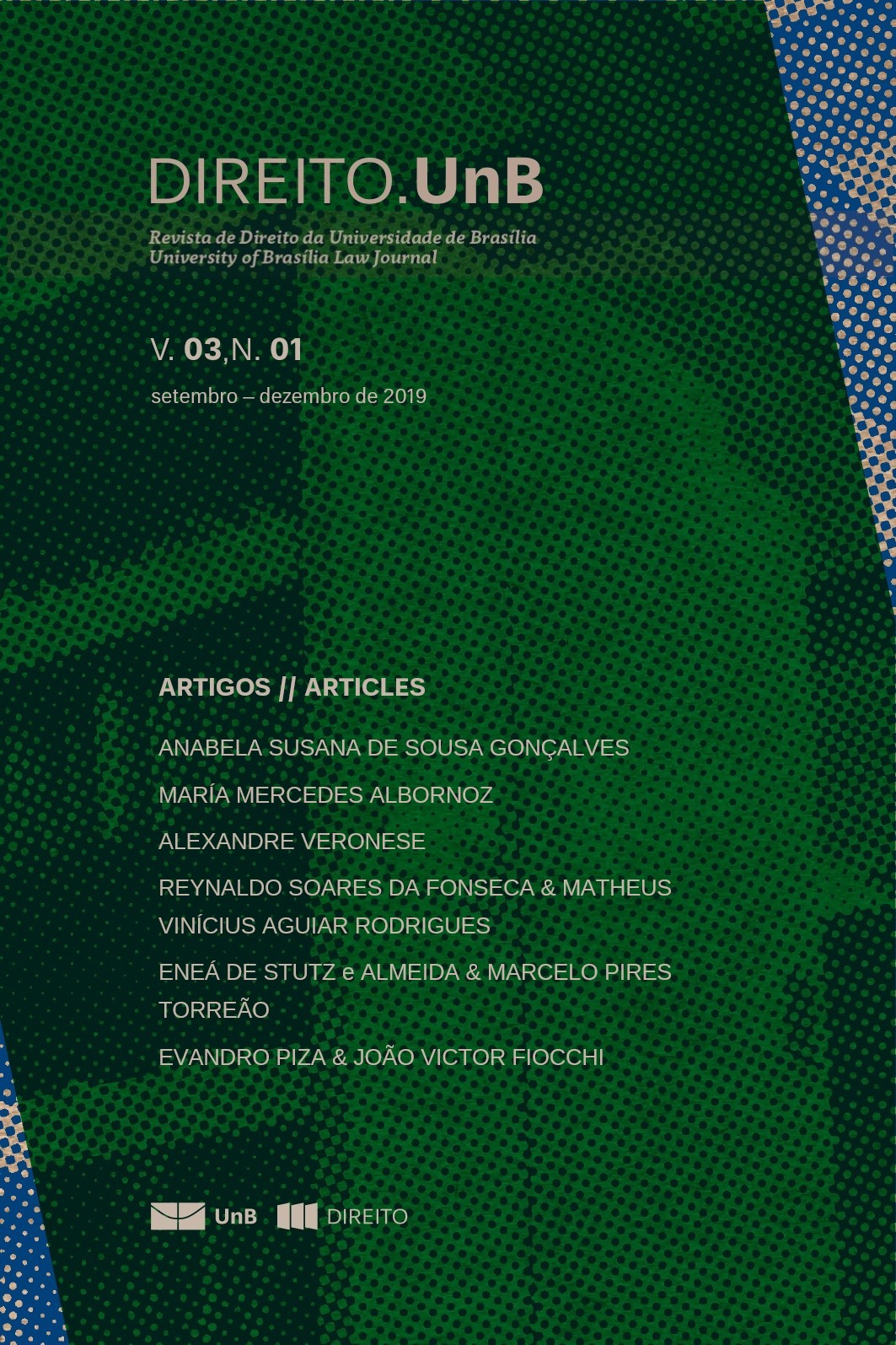Security, watchword: the inflows of criminal authoritarianism in the application of Chilean and Brazilian anti-terror legislation
Keywords:
Mapuche People, MST (Landless Workers’ movement), Criminalization, Criminal Authoritarianism, Anti-Terrorism LegislationAbstract
The article analyzes the case Norín Catríman y Otros v. Chile, judged by the Inter-American Court of Human Rights in May 2014, from a perspective that shifts it from the standpoint of an isolated case of misapplication of the anti-terror legislation and places it in the Latin American context of widespread violations of individual rights and freedoms of members of vulnerable groups through repressive criminal interventions. In this context, the treatment of the Landless Workers Movement (MST) is evidenced, in a context in which the rejection of political dissent and the denial of the rights and freedoms of protesters also occurred through criminalization, even before the creation of an anti-terror legislation. Thus, despite the unequivocal dangers arising from the typification of the crime of terrorism from a broad and open incriminating law, it is certain that in Latin America daily violations of constitutional rights and freedoms have occurred without the need to resort to an “exception legislation”. However, the use of anti-terror legislation is now also present in Brazil with the creation of Law 13.260 of March 16, 2016, as another mechanism for expanding and anticipating criminal control aimed at vulnerable groups, that are defined as “dangerous”, falling within a deep-rooted dynamic of selective and routine curtailment of rights and freedoms, anchored in the generic imperatives of defending security and maintaining order. Such cases corroborate a long history of undemocratic strategies to criminalize social issues.
Downloads

Downloads
Published
How to Cite
Issue
Section
License
Copyright (c) 2019 Direito.UnB - Law Journal of the University of Brasília

This work is licensed under a Creative Commons Attribution-NonCommercial-NoDerivatives 4.0 International License.
Autores que publicam na Revista Direito.UnB concordam com os seguintes termos:
- Autores mantêm os direitos autorais e concedem à revista o direito de primeira publicação, com o trabalho simultaneamente licenciado sob a Licença Creative Commons - Atribuição-NãoComercial-SemDerivações 4.0 Internacional que permite o compartilhamento do trabalho com reconhecimento da autoria e publicação inicial nesta revista.
- Autores têm autorização para assumir contratos adicionais separadamente, para distribuição não-exclusiva da versão do trabalho publicada na Revista Direito.UnB (ex.: publicar em repositório institucional ou como capítulo de livro), com reconhecimento de autoria e publicação inicial nesta revista.
- Autores têm permissão e são incentivados a publicar e distribuir seu trabalho online (ex.: em repositórios institucionais ou em suas páginas pessoais) a qualquer momento após à definição do processo editorial.
- Autores concordam que, eventualmente, seus trabalhos poderão ser agregados pela Revista Direito.UnB às bases e sistemas de informação científica existentes (indexadores e bancos de dados atuais) ou que existam no futuro (indexadores e bancos de dados futuros). Os detentores dessas bases de dados terão a possibilidade de realizar as seguintes ações sobre o artigo:
- Reproduzir, transmitir e distribuir o artigo, no todo ou em parte sob qualquer forma ou meio de transmissão eletrônica existente ou desenvolvida no futuro, incluindo a transmissão eletrônica para fins de pesquisa, visualização e impressão;
- Reproduzir e distribuir, no todo ou em parte, o artigo na impressão;
- Capacidade de traduzir certas partes do artigo;
- Extrair figuras, tabelas, ilustrações e outros objetos gráficos e capturar metadados, legendas e artigo relacionado para fins de pesquisa, visualização e impressão;
- Transmissão, distribuição e reprodução por agentes ou autorizada pelos proprietários de distribuidoras de bases de dados;
- A preparação de citações bibliográficas, sumários e índices e referências de captura relacionados de partes selecionadas do artigo;
- Digitalizar e/ou armazenar imagens e texto de artigo eletrônico.





